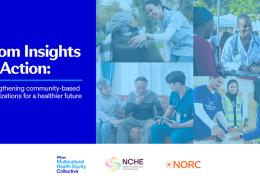Three Principles of Responsibility for Artificial Intelligence (AI) in Healthcare

Most people already use artificial intelligence (AI) in their daily lives, sometimes without even thinking about it as being AI-driven. Global positioning systems (GPS) are AI-based navigation applications, for instance, that help us find the quickest route between Points A and B and suggest alternate routes when an accident has jammed up traffic. Artificial intelligence speeds up online shopping by remembering our shopping preferences and recommending similar and complementary products.
Artificial Intelligence in Healthcare
In healthcare, AI has the potential to drive scientific breakthroughs, aid in diagnosis, treatment, and management of diseases, accelerate drug development and delivery, control costs, and support health equity.
Artificial intelligence may help scientists discover genetic differences that explain why, for example, some people with high blood pressure respond well to a particular medication while others do not. Or why certain people experience specific side effects when they undergo a treatment that’s generally well-tolerated. It could even help researchers discover new therapeutic uses for existing medicines.
“Artificial intelligence and machine learning enable us to use data to gain insights into disease and increase our understanding of how different patient populations respond differently to disease and therapies,” says Anastasia Christianson, Pfizer’s Head of Artificial Intelligence, Machine Learning, Data, and Advanced Analytics.
Because computers can process data and perceive patterns so much more quickly than human beings, “AI allows us to find patterns in the data that humans may miss,” she says.
With all of this potential, artificial intelligence is transforming life sciences and revolutionizing healthcare.
“Artificial intelligence can unlock huge opportunities for the industry and for patients,” says Dennis Hancock, Pfizer’s Head of Digital Health, Medicines, and AI. “But we must be vigilant about applying human oversight and we must keep ethics, responsibility, and patient focus front and center.”
Ed Nowicki, Senior Vice President, Deputy Chief Compliance Officer at Pfizer, agrees. “New technologies call for new risk management practices," he says. “We partner across the enterprise to deliver innovation in alignment with our values and standards. It’s all about being proactive.”
A proactive mindset is what led Pfizer to develop its Responsible AI Principles —a set of policies and controls that allow the company to unleash the power of AI ethically and responsibly.
Principle #1: We strive to design AI systems that empower humans and promote equity
Responsible AI can empower humans and human decision-making, but it is not meant to completely substitute for it. For example, artificial intelligence can find hidden signals in data much faster than a human could. These insights can help scientists rapidly identify drug candidates, or physicians to make more informed treatment decisions for their patients, Hancock says.
Artificial intelligence also has tremendous potential to promote equity because machines are not inherently susceptible to bias. Implicit bias, or unconscious attitudes that are often based on stereotypes, is an important cause for concern in healthcare. However, humans must first ensure that unbiased data and algorithms are used in the creation of AI tools—which is not always easy. If algorithms learn from limited datasets or are not sufficiently tested, the outputs of an AI system may not be representative of the larger population.
With these things in mind, data scientists and engineers at Pfizer worked together to create an innovative digital system that helps Pfizer colleagues identify and assess potential challenges in the creation of artificial intelligence solutions, such as biases and disparities. The system reviews the AI algorithm and creates reports that highlight areas in need of attention. Teams can analyze the recommendations to determine whether action may be required and what form it should take.
“This innovative tool helps our data scientists eliminate bias in the data sets they’re using to train algorithms,” Christianson says. “It helps scientists identify bias in the trained models, and it reviews the data and will flag potential biases that may affect the outcome.”
Principle #2: We respect individuals’ privacy and the need for transparency in the utilization of data and AI
Transparency and trust are among the most important objectives in the adoption of artificial intelligence in healthcare, according to Hancock. If patients, families, and healthcare providers don’t understand where data is coming from or how it is being used, it impacts trust.
“AI and advanced analytics have the capability of helping us prevent, treat, and manage disease for people more effectively,” Hancock says. “Without trust, though, the real-world impact of AI could be severely curtailed.”
Making systems “explainable” to users and other stakeholders is a key form of transparency that increases trust. This is why Pfizer policy requires that users are informed, where practicable, of the limitations and risks of the AI systems they are using.
Pfizer also incorporates privacy into the design of its AI systems. Patient data are tightly controlled and internal processes are designed to ensure that the privacy, safety, and security of individuals is protected. Pfizer maintains technical and organizational controls designed to prevent unauthorized access to or use of personal data.
Principle #3: We take ownership of our AI systems
These principles highlight Pfizer's accountability for ensuring that AI systems meet ethical, legal, and regulatory standards.
“Trust is key, so we work to ensure that ownership and human oversight remain at the forefront," Nowicki says, noting that healthcare companies have a responsibility to carefully evaluate and manage their AI tools and technologies.
While AI is being used to drive efficiency and effectiveness from research and development to compliance, finance, and human resources management, it's also being used by third-party partners and various vendors and service providers.
“We have high ethical standards for ourselves, as well as our third-party partners," Nowicki continues. "We believe our Responsible AI approach can help raise the bar for the industry and drive the adoption of ethics and risk management best practices.”
Responsible use of AI will help the healthcare industry accelerate scientific discoveries and other advances to improve human well-being.
“AI has truly transformative potential,” Hancock says. “AI is changing how drugs are developed and deployed. It can change how patients are diagnosed. And it can change the delivery of healthcare. The power and potential of AI to impact human health is why it’s so important to implement AI ethically and responsibly.”
References
What is Artificial Intelligence (AI)? IBM. https://www.ibm.com/topics/artificial-intelligence Accessed January 6, 2023.
![]()





